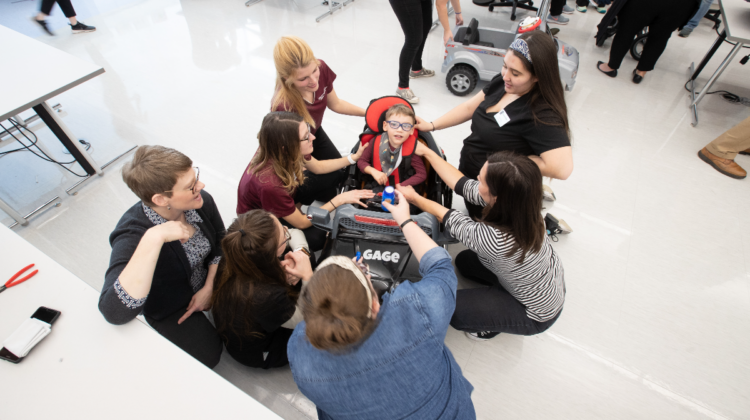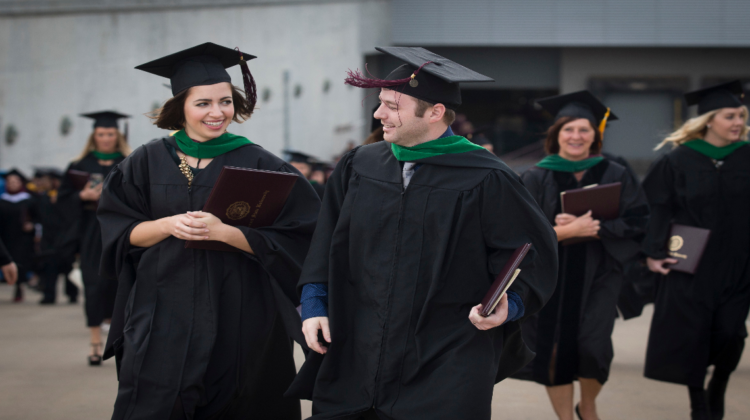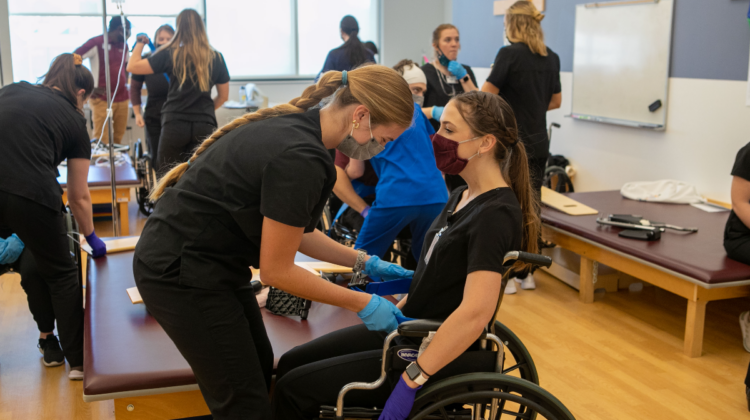A proud Missouri State University graduate, Elise Mitchell is an example of how determination and hard work leads to success in life.
Navigating the challenges of a rigorous curriculum while raising a child on her own, Mitchell’s dedication pushed her beyond obstacles, leading to achievements in the field of speech-language pathology.
Balancing education and parenthood
At MSU, Mitchell pursued her bachelor’s degree in communication sciences and disorders (CSD) and her master’s degree in speech-language pathology.
Working as a certified nurse’s assistant sparked her passion for the field. Mitchell completed her bachelor’s and master’s in 2011 and 2013, respectively.
During her college years, Mitchell faced unique challenges as she raised her son. He often accompanied her to classes and clinic sessions, forming lasting bonds with MSU faculty.

“I was a single mom when I went to MSU. Most of the professors, if they’ve been there long enough, know my son Hayden who’s now 17,” Mitchell said.
It was not easy, but the support she received helped her to earn her degrees while juggling single parenthood.
Transitioning to professional life
After graduation, Mitchell embarked on a career in speech therapy. She initially worked in skilled nursing, but after having more kids, she joined the school districts. However, she soon realized the demands of working for Missouri schools as a speech therapy employee did not align with her lifestyle.
Seeking better opportunities, she transitioned to a teletherapy company, where she gained valuable experience in management and entrepreneurship.
Entrepreneurial journey
In 2019, Mitchell decided to chart her own path as a speech therapy contractor, leveraging her expertise to help fellow therapists navigate the complexities of school contracts.
This led to the creation of her business, The Therapist Support Network, where she developed resources to empower therapists nationwide. To date, Mitchell has assisted over 13,000 therapists, offering them support to contract with school districts for their services.
“I decided I was going to make it my mission to help speech therapists, occupational therapists and physical therapists who were feeling burnt out,” Mitchell said.
Recognition and reflection
Mitchell’s entrepreneurial endeavors have not gone unnoticed. She was recently included in Springfield Business Journal’s 2024 “40 Under 40” list. It is an awards program honoring accomplished and fast-rising professionals in southwest Missouri under the age of 40.
According to Mitchell, this recognition validated her efforts and dedication.
“It was really exciting to be nominated,” Mitchell said. “It gave me a chance to reflect and take a look at what I’ve accomplished.”
Impact of MSU
Reflecting on her time at MSU, Mitchell credits the university’s emphasis on service learning and public affairs for shaping her leadership skills and community involvement. In addition, the supportive faculty in the CSD department played a pivotal role in her development, leaving a lasting impression. She continues to inspire and educate others as an adjunct faculty member at MSU.
“I had some wonderful professors, so I was very blessed to be taught by them,” Mitchell said.




